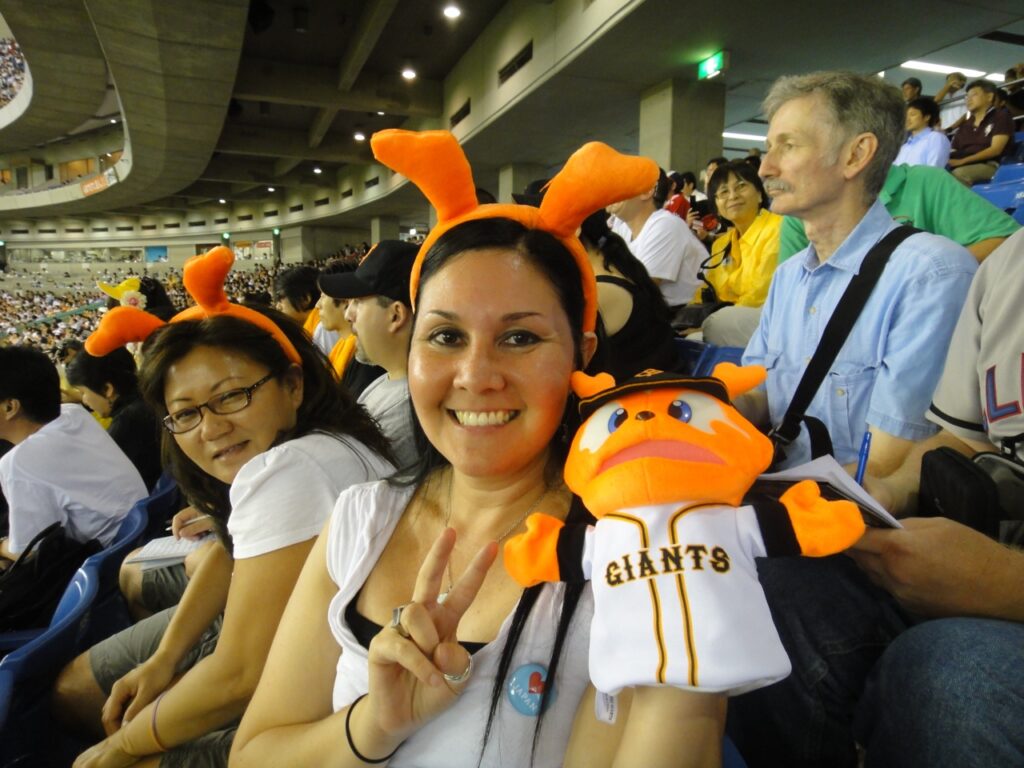
To this day, Susan McCormac will tell you she doesn’t like group tours. She says, “no, thanks,” to the rigidity, the tight structure, the feeling that no time is your own.
But she has discovered that some group tours are not like most group tours. JapanBall tours, for example.
A bit of explanation is in order.
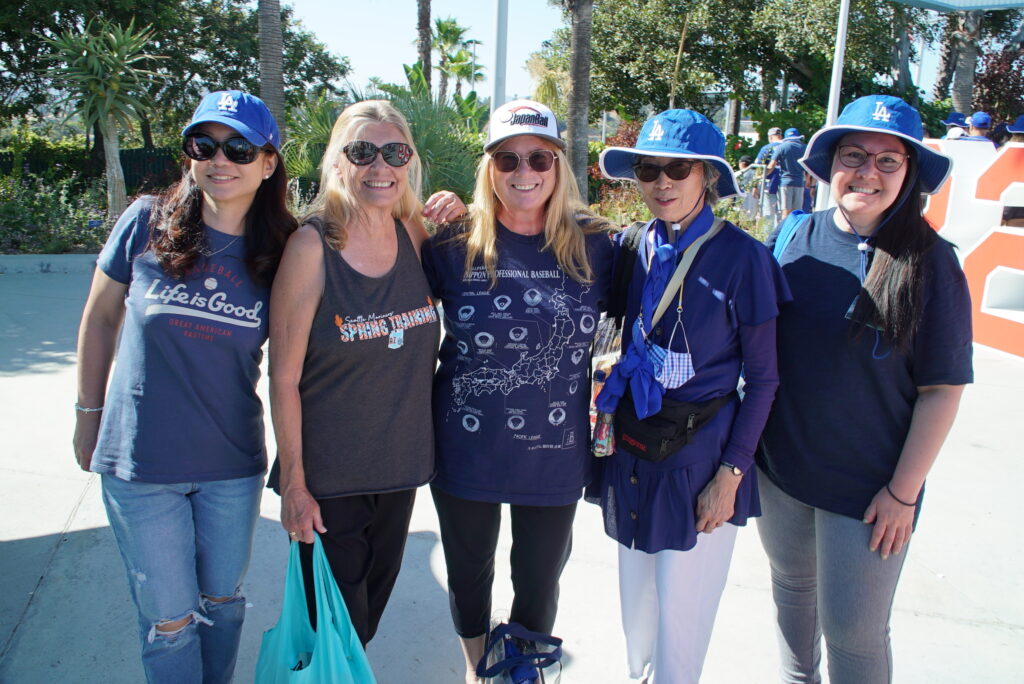
McCormac works in sports television in New York; her job is to assemble and upload the graphics one sees while watching a televised sporting event. Her mother is from Okinawa, so she had been to Japan, but she hadn’t seen a baseball game there until she went to Tokyo to work the 2004 season-opening series between the New York Yankees and Tampa Bay Rays. We’ll let her take it from here.
“My main spring and summer job is working home games for the Yankees that are televised on the YES Network,” she said. “I knew very little about Japanese baseball in 2004 when I was part of the broadcast team in Tokyo. Aside from playing each other, the Yankees and Rays also played exhibition games against the [Yomiuri] Giants and [Hanshin] Tigers, and it was an amazing experience, and I wanted to learn more.”
She began Googling Japanese baseball and came across JapanBall, which had been founded by Bob Bavasi just a few years before.
“After thinking about it some, I sent a note to Bob and said it seemed kind of cool, but that I didn’t like tours,” McCormac said. “And, to my surprise, he actually called me.”
Bavasi, who stepped back from JapanBall a few years ago but still stays in touch with the community, remembers the call.
“I told her I felt exactly the same way about tours that she did and that we didn’t operate like so many do,” he said. “We don’t have someone holding a flag and leading everyone around. We treat people like adults. I remember one person saying that the atmosphere was just like going to a ballgame with some friends.”
McCormac added, “Bob said we could do whatever we wanted . . . that our schedule was our own except that we had to be at certain places at certain times to go to games. So I said that, OK, I’d go – and it was a wonderful experience. The fans make the difference. They really pay attention and take everything to the next level. I was so taken by the drums, the noise, the chants for each individual player. I particularly loved the atmosphere at the Hanshin Tigers’ stadium.”
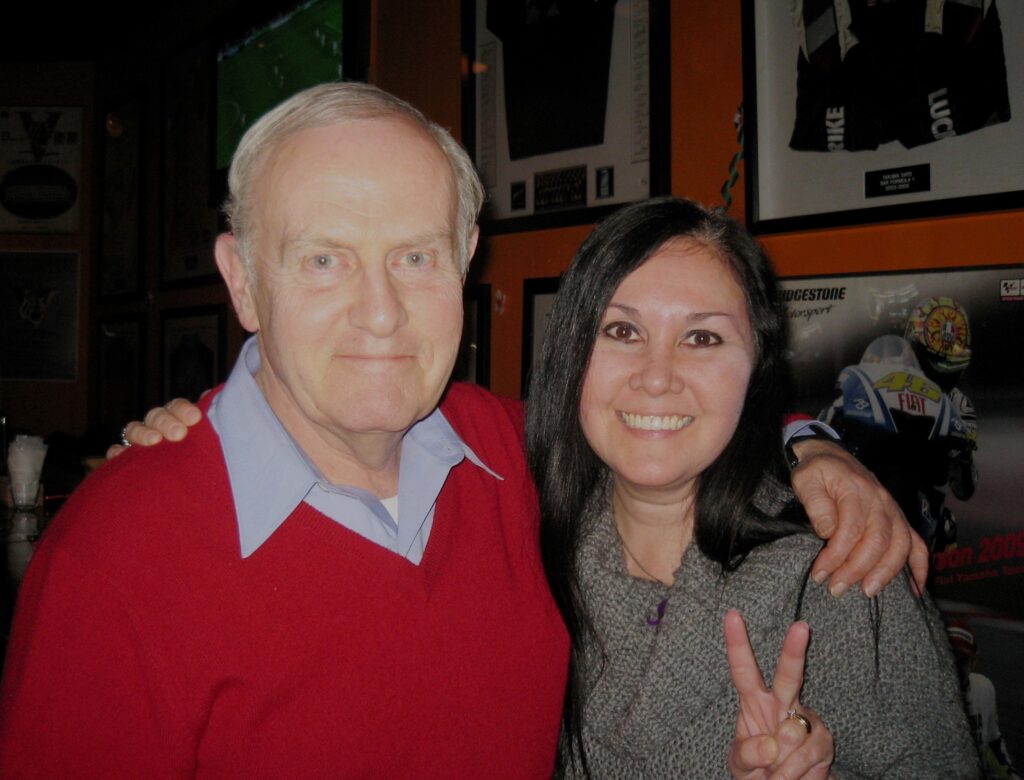
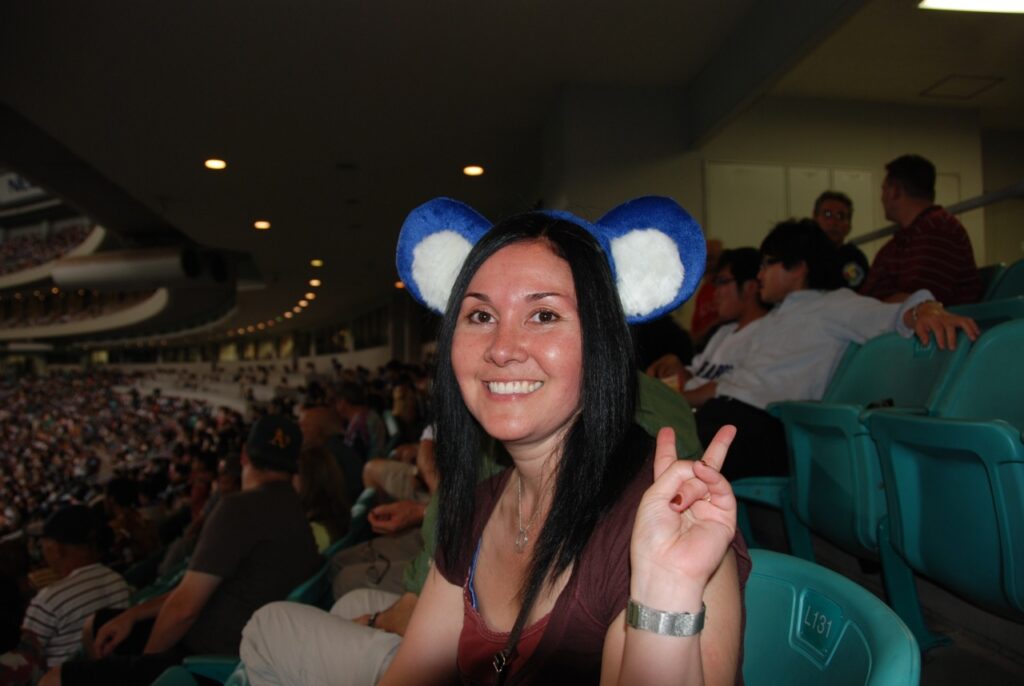
So much so that she’s now been on six JapanBall trips, seen games in all but one of the stadiums, and been inducted into the JapanBall Hall of Fame. She’s not been on a tour in several years, though, and is anxious to: “I need to do another one . . . I didn’t realize it had been so long.”
Bavasi, for one, was always glad to see her.
“Susan is very personable and affable, and she’s very generous about helping out. I remember once, when I had bought a new laptop computer right before a trip and was having a lot of trouble with it; she helped me get it to work correctly. Another time, when we were going back to our hotel, I started going in one direction, but she said we should go another way, and it turned out to be better.
“She speaks Japanese, which obviously helps in some situations, and she could help me scout for new places and things to do. She also designed JapanBall’s original Facebook page, so I’m not sure who profited more by her being on the trips – me or her,” he said with a chuckle.
McCormac’s interest in baseball grew from her father’s love of the game. Growing up near Fayetteville, NC, she would watch games with her father, who was an Atlanta Braves fan. When her area got cable television, she watched Braves games on the TBS Superstation, headed by Braves owner Ted Turner. Although she didn’t know much about Japanese baseball – these were pre-internet days, after all – she knew about home-run champion Sadaharu Oh and some of the American imports such as Randy Bass, who starred for the Hanshin Tigers from 1983-1988.
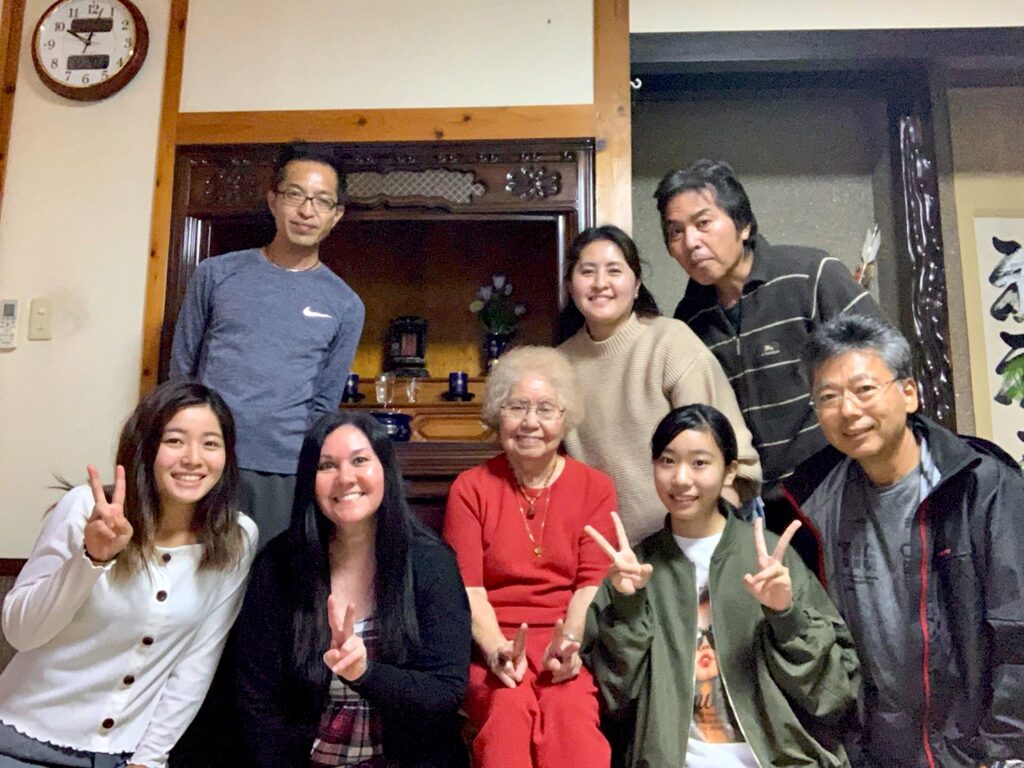
She majored in communications while in college and originally had the goal of writing for TV situation comedies–“I always thought I was funny,” she said with a laugh.
One way or the other, she wanted to work in television, but “behind the scenes.” Her first job in the mid-1990s was in basic production at the ABC affiliate in Richmond, VA, and she “did a little bit of everything.” Gradually, she started getting more and more freelance work, including with ESPN, which she did “for a really long time, traveling all over doing college football and basketball.”
McCormac later worked in Boston and has now been in New York for 23 years. She has been with YES Network since its inception in March 2002 and also does a lot of work on studio productions with CBS in the offseason. She worked the World Baseball Classic in 2013 and 2017, and she was in Japan back in March, working the pool round of the 2023 World Baseball Classic.
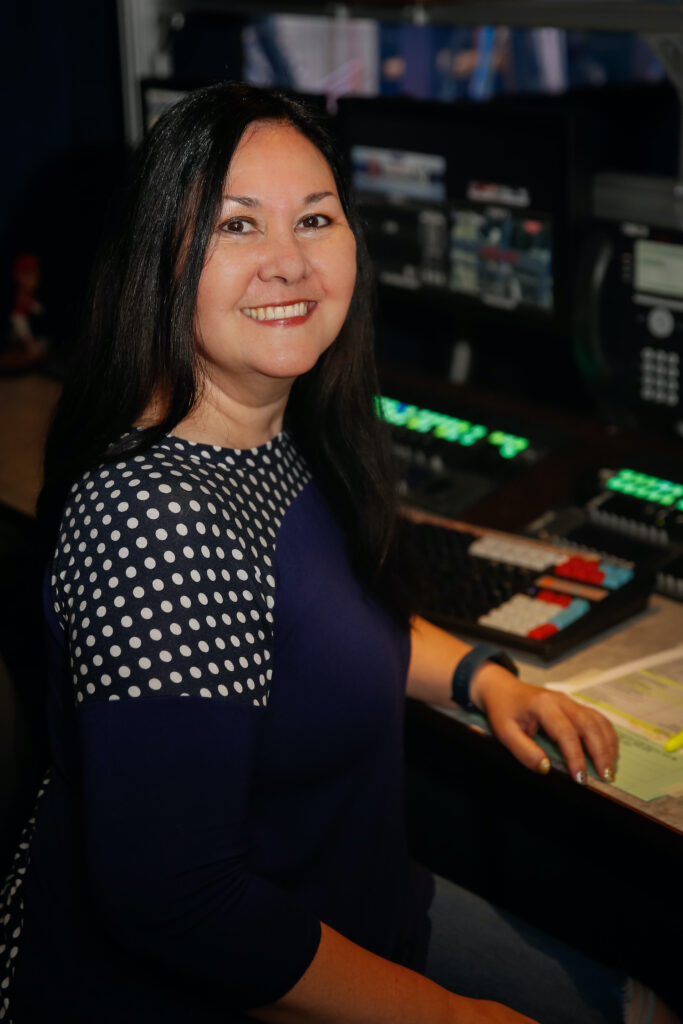
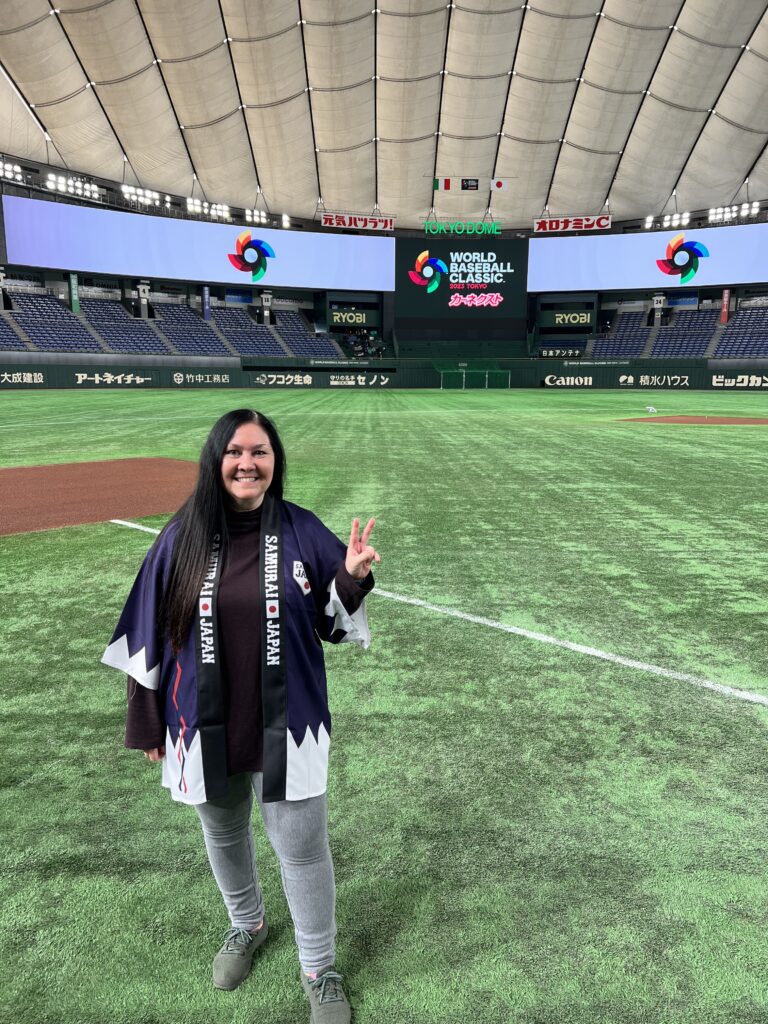
On the more personal side, she also traveled to Japan in October 2022 for a conference and was able to visit with family in Okinawa for the first time since Covid-19 emerged – “very emotional,” she said.
“For the WBCs, I’ve worked with a lot of Americans, but also a lot of Japanese,” she said, “and I’ve learned a lot about how they do things. For one thing, when someone hits a home run, the camera follows the ball all the way and zooms into the spot where the ball lands. The first time that happened, our director said, ‘What was that?’ He thought it was a mistake, but he was told it’s just something they do. The work ethic there is amazing. People are just pushing, pushing, pushing to have a perfect broadcast.”
McCormac is pushing her own entrepreneurial interests beyond sports, with a burgeoning side venture that has an opportunity to get bigger. She is the founder of JapanCultureNYC, the leading English-language resource for Japanese Culture in New York. The idea sprang from a blog she began writing in 2006 and has steadily expanded.
“I have a real passion for Japanese culture – finding it everywhere in the city and sharing it with others,” she said. “Originally, I started blogging about various Japanese-related happenings, writing about things after they occurred. Then I got the idea to tell people about things beforehand, so they could go, too.
“My tag line is, ‘All Things Japanese in New York City.’ There are so many Japanese events here that they’re hard to keep track of–galleries, film festivals, performers, playwrights. . .so many things happening. This time of year, there are also all the Cherry Blossom festivals. I recently MC’d one in Queens.”
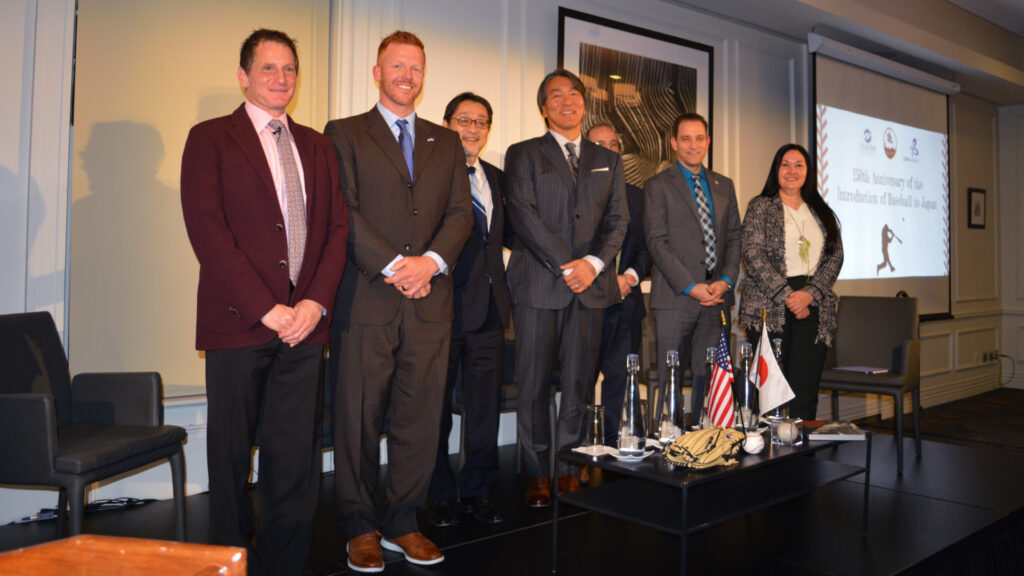
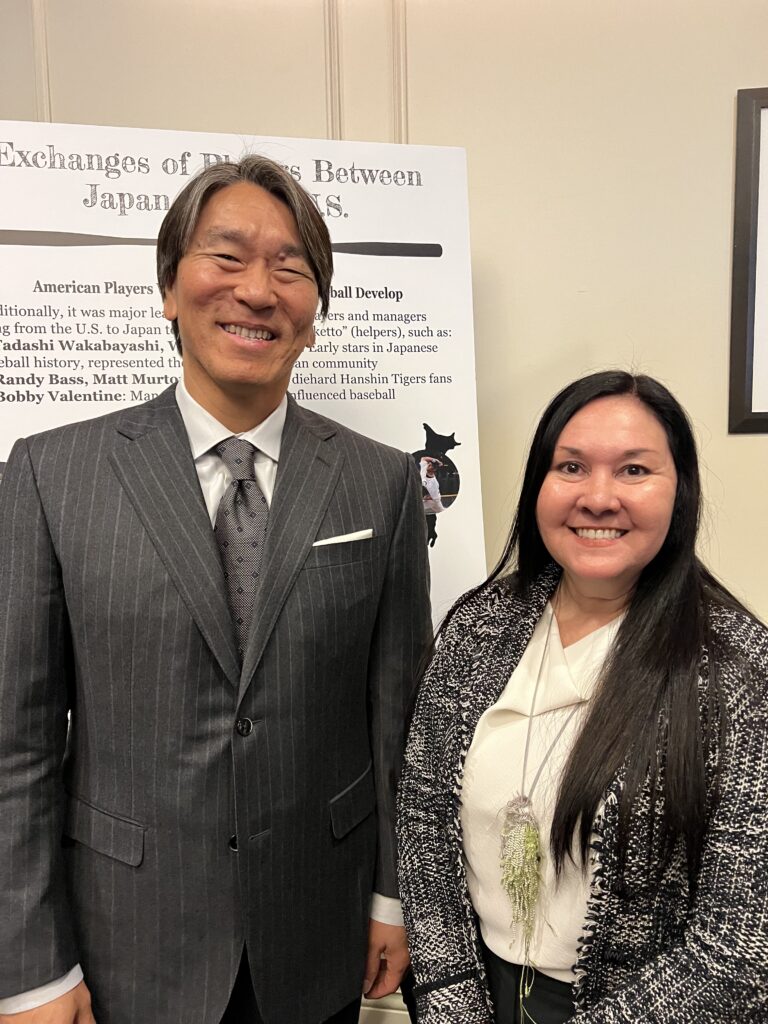
McCormac developed the website over time and re-designed it. She is instituting membership programs and sponsorship deals that would provide discounts to paying members. Much of the content will still be free to read, but there will be additional content for paying members.
“It’s a huge community, and not just people of Japanese heritage. I have readers who have accessed the site from Japan, China, Vietnam, and other places. There are a lot of younger people who like things such as anime and manga [Japanese graphic novels], the latter of which often get turned into animated movies or series.
“Right now, I’m just trying to build membership. I want people to learn from the site and to support artists who work so hard to get off the ground. I want to be THE resource.”
With her expertise on production, passion for Japanese culture, and communal approach that we’ve witnessed on a half-dozen JapanBall tours, we have no doubt that Susan will meet that goal.

